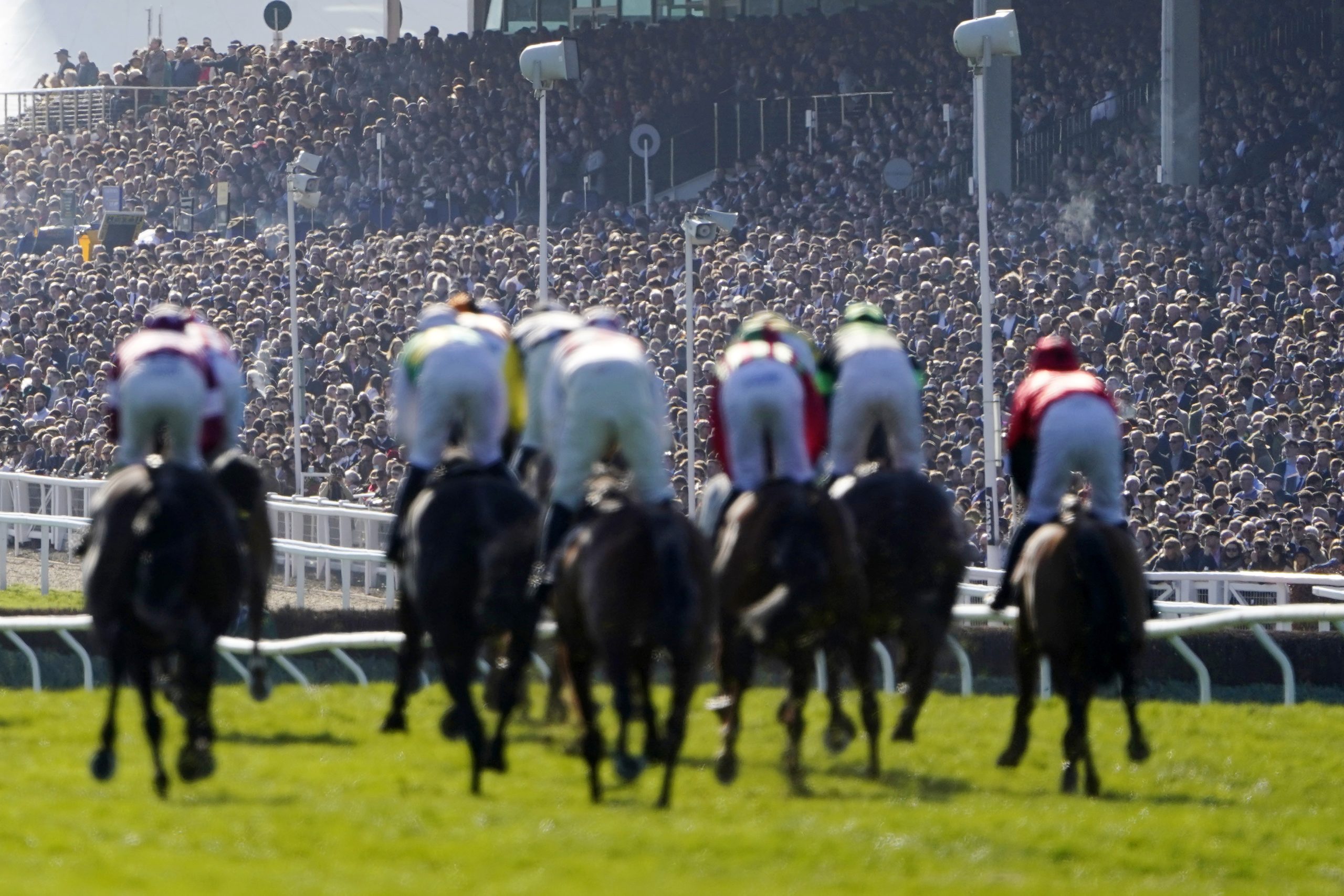
British horse racing is a significant economic driver that bolsters local economies across the United Kingdom.
From rural communities to the top cities, the horse racing industry contributes billions to the UK’s national economy.
It supports thousands of jobs and plays an important role in tourism and local development.
Events like the Cheltenham Festival and the Grand National not only draw massive crowds but also provide a boost to local hotels, restaurants and transportation services.
In places like Newmarket, often referred to as the headquarters of British horse racing, the entire town thrives on the presence of training yards, stud farms and racecourse operations.
Similarly, smaller racecourses such as those in Musselburgh or Cartmel create seasonal employment and support small businesses.
The ripple effect of a single race meeting can be felt in sectors like retail, construction and even education, with equine studies and training programs gaining popularity.
This blend of cultural tradition and economic activity makes horse racing an essential part of the UK’s regional and national development strategy.
Horse racing stands as the UK’s second-largest spectator sport behind football.
Annually, it contributes over £4 billion to the national economy and supports approximately 85,000 jobs, encompassing roles in racecourses, training yards, breeding operations and associated services. The industry’s financial ecosystem is linked with the betting sector as well.
Many UK gambling sites offer extensive casino games and horse racing markets, providing punters with opportunities to engage with the sport digitally.
The growing popularity of online casinos, often found alongside virtual horse racing platforms, has further diversified the digital gambling landscape and attracted a wider audience.
This online presence not only enhances the sport’s accessibility but also generates substantial tax revenues and supports technological advancements in betting platforms.
Additionally, major events like Royal Ascot and the Epsom Derby significantly boost local economies through hospitality, retail and media rights. Horse racing also attracts sponsorships from large brands, injecting further capital into the sport and related industries.
Rural areas benefit from the industry’s demand for land, feed and veterinary services which supports agriculture and local suppliers.
The synergy between racing and tourism sees thousands of international visitors contributing to hotels, transport and entertainment venues.
Collectively, these factors underscore horse racing’s multifaceted role as both a cultural and economic cornerstone in the UK.
For exclusive stories and all the detailed Racing news you need, subscribe to the Racing Ahead website, digital edition, or magazine from as little as 8p a day.
The Grand National
The Grand National, held at Aintree Racecourse, is another prime example of horse racing’s economic influence. In 2022, the event contributed an estimated £60 million to the Liverpool City Region’s economy, benefiting sectors such as hospitality, retail and transportation.
Hotels across the city reach full occupancy, with many charging premium rates during the three-day event.
Local pubs and restaurants see a significant increase in trade, especially in areas like the city centre and near Aintree, where thousands of racegoers gather.
The influx of visitors also boosts Liverpool’s taxi services, train usage and airport traffic, creating a ripple effect across various transport providers.
Retailers benefit from increased footfall, particularly clothing stores and milliners as attendees seek out race-day outfits.
In addition, the Grand National attracts international attention, promoting Liverpool as a vibrant cultural and sporting destination well beyond the racing world.
Alongside the live event, the Grand National drives massive online betting activity, with many punters placing wagers through popular UK betting sites and online casinos offering horse racing markets.
This digital engagement extends the event’s reach globally, allowing fans who cannot attend in person to participate virtually.
Cheltenham Festival
The Cheltenham Festival is not only a highlight of the racing calendar but also a substantial economic contributor. In 2022, the festival’s total economic impact was estimated at £274 million, a significant increase from previous years.
Attendees’ average expenditure rose to £697, underscoring the event’s importance to local businesses and the hospitality sector.
Hotels, bed and breakfasts and short-term rentals in and around Cheltenham often sell out months in advance, benefiting from inflated seasonal rates.
Local pubs, restaurants, and shops experience a surge in customers with some reporting their highest takings of the year during the festival week.
The event also creates temporary employment opportunities in areas such as event staffing, security, catering and transport.
Betting activity during the Cheltenham Festival is enormous, with millions wagered both on-course and through online platforms.
Popular UK betting sites often see a spike in traffic, offering a wide range of markets including each-way bets, ante-post wagering and live in-play betting options.
Many punters take advantage of special Cheltenham promotions and enhanced odds, boosting both engagement and revenue for bookmakers.
Online betting apps have also made it easier for fans worldwide to participate, contributing to the festival’s global reach and economic impact.
Beyond direct spending, Cheltenham gains valuable media exposure, attracting future tourists and solidifying its status as a premier racing destination.
The festival’s success also drives investment in infrastructure and public services, leaving a lasting legacy for the local community.
Newmarket
Newmarket, Suffolk, often known as the home of horseracing, exemplifies the sport’s profound local economic impact.
The town contributes over £240 million annually to the local economy and supports more than 3,000 full-time equivalent jobs.
With over 50 training stables, two major racecourses and numerous breeding studs, Newmarket’s economy is deeply intertwined with the racing industry.
The National Stud and the National Horseracing Museum also attract thousands of visitors each year, boosting the town’s tourism and hospitality sectors.
Local businesses, from feed suppliers to hospitality venues, thrive on race-day crowds and year-round industry activity.
Tattersalls, Europe’s largest bloodstock auction house based in Newmarket, drives millions in sales and draws international buyers, further cementing the town’s global racing reputation.
Schools and colleges in the area offer equine-focused programs, ensuring a steady supply of skilled workers into the industry.
In effect, Newmarket’s identity and prosperity are inseparable from the success and sustainability of British horse racing.
Yorkshire
In Yorkshire, horse racing injects approximately £300 million into the regional economy each year. Racegoers spend around £34.1 million off-course on accommodations, dining, and transportation.
The industry supports over 3,600 full-time equivalent jobs, with a significant concentration in rural areas, highlighting its role in sustaining local communities.
Iconic venues like York Racecourse, Doncaster, and Wetherby attract hundreds of thousands of spectators annually, driving footfall to nearby towns and businesses.
The prestigious Ebor Festival at York, for example, generates millions in visitor spending and media exposure for the region.
Training centres in Middleham, a historic racing town, provide year-round employment and keep local services—from veterinary care to tack shops—thriving.
Annual events also stimulate seasonal hiring in hospitality and retail sectors, offering vital income for students and part-time workers.
Beyond racing, the industry helps preserve Yorkshire’s heritage and open landscapes, with racecourses investing in environmental sustainability and community outreach.
Challenges and Future
Horse racing plays a crucial role in rural employment and development in the UK. The industry supports a wide range of jobs, from jockeys and trainers to veterinarians and hospitality staff.
Breeding farms, such as those in Gloucestershire and County Durham, employ grooms, farriers and agricultural workers year-round, ensuring continuous rural activity and investment.
Training yards often collaborate with local colleges to offer apprenticeships and equine studies programs, creating pathways for young people to enter the industry.
Ancillary services like feed supply, fencing and stable construction also thrive due to consistent demand from equestrian businesses.
Events like point-to-point races in the countryside bring in visitors and seasonal workers, further boosting local economies.
By anchoring employment in traditionally agricultural areas, horse racing helps sustain rural populations and supports the broader rural economy.
Despite these positive contributions, the industry faces several significant challenges, particularly concerning taxation and regulation. #
Proposals to increase the Remote Betting & Gaming Duty from 15% to 21% have raised concerns about potential negative impacts on the sport’s finances.
Industry leaders warn that such tax hikes could reduce sponsorships, prize money and overall investment which will potentially drive bettors toward unregulated markets.
Additionally, concerns about the welfare of racing animals have prompted calls for stricter oversight, which could increase operational costs for racecourse operators and trainers.
Climate change also poses a risk, with unpredictable weather patterns affecting turf conditions and causing cancellations or lower attendance.
Despite these challenges, the industry is actively exploring innovative solutions, such as enhancing fan engagement through virtual race-day experiences and leveraging data analytics to improve online betting.
Strategic partnerships with technology firms and increased investment in equine welfare research may help ensure the long-term sustainability of British horse racing.




















